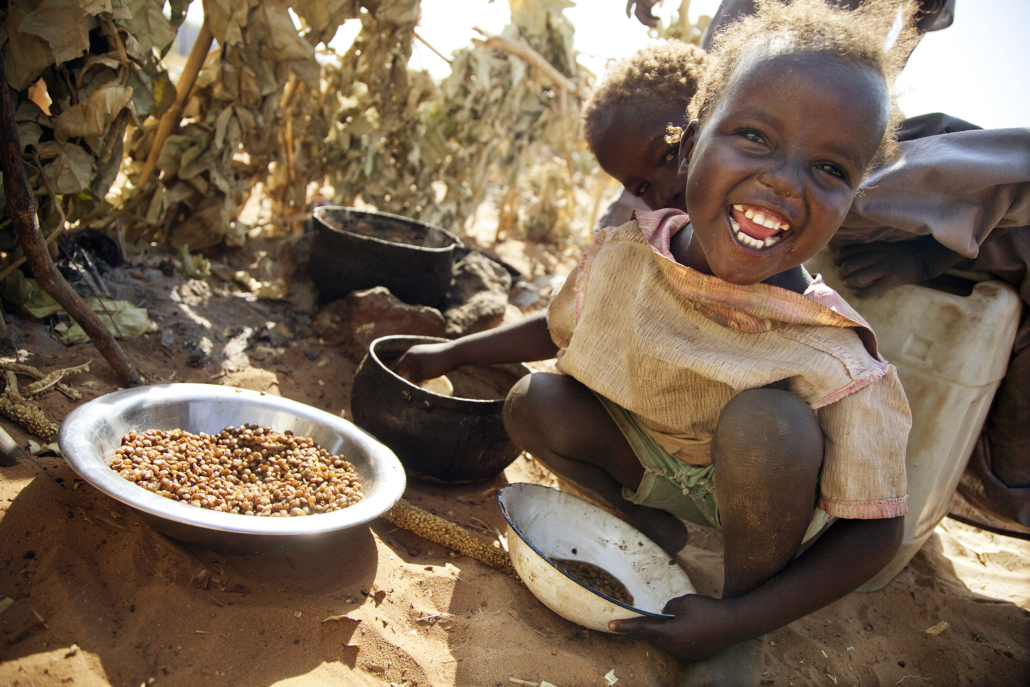Everything To Know About Hunger in Sudan
 With more than half the population facing food insecurity, Sudan is experiencing one of the world’s worst humanitarian crises in recent history. However, with the help of community organizations and foreign aid, there is hope for addressing hunger in Sudan.
With more than half the population facing food insecurity, Sudan is experiencing one of the world’s worst humanitarian crises in recent history. However, with the help of community organizations and foreign aid, there is hope for addressing hunger in Sudan.
The Current Situation of Hunger in Sudan
Despite being the only officially confirmed famine in the world, Sudan has received very little help from foreign aid and a lack of media coverage. In an interview with Save the Children, comedian Ola Labib highlights how the media has ignored the conflict and subsequent famine because Western culture has normalized African pain. However, what is happening is far from normal, and mass desensitization to this scale of suffering is terrifying.
About 8.5 million people in Sudan are facing food insecurity at an emergency level, and 25.6 million people are facing it acutely. And yet, despite the international community abandoning them, civilians have demonstrated commendable resilience by creating Emergency Response Rooms (WhatsApp group chats that coordinate humanitarian aid) to combat widespread hunger in Sudan. For example, the Khartoum State Emergency Response Rooms (ERRs) collaborate with non-governmental organizations (NGOs) to feed people across the Khartoum state. Since April 2023, the Khartoum State ERRs have united existing support systems to form a network of decolonized aid, consisting of 162 base ERRs and 4,000 volunteers across all seven districts of Khartoum. In recognition of their incredible work, the Nobel Peace Prize committee has nominated them for the 2025 award.
What Caused the Crisis of Hunger in Sudan?
Sudan’s famine is a multi-layered issue, with many factors such as drought, flooding and economic collapse coming into play. However, although changing weather patterns have exacerbated hunger in Sudan, humans can also cause modern famines. The ongoing conflict between the Sudanese Armed Forces (SAF) and the paramilitary Rapid Support Forces (RSF), which began in April 2023, has largely caused Sudan’s humanitarian crisis. After co-leading a two-year coup, rising tensions between Gen Fattah al-Burham (SAF) and Gen Mohamed Hamdan Dagalo (RSF) sparked Sudan’s third civil war. During this conflict, both sides have actively blocked access to aid and looted resources from civilians, utilizing hunger in Sudan as a weapon of war. Evidence also shows that the RSF, which originated from the Janjaweed militia and receives partial funding from the United Arab Emirates (UAE), has committed genocide in the region of Darfur and used rape as a weapon of war.
Organizations Supporting Sudan
There are many organizations addressing hunger in Sudan, including the World Food Programme (WFP), Action Against Hunger and Save the Children. The World Food Programme (WFP) has been working in Sudan since 1989. By providing emergency food packages, cash-based assistance and nutrition supplements, as well as supporting agricultural workers to increase production and prevent losses, the WFP has assisted more than 13 million people since the conflict began in 2023. Similarly, Save the Children has been working in Sudan since 1983 and has helped 3.8 million people since 2023 by providing emergency care nutrition programs and cash transfers for livelihood support. Meanwhile, Action Against Hunger started working in Sudan in 2017 to provide health and nutrition interventions. The organization also established community protection networks for women and girls at risk of sexual violence, supporting 44 health facilities and seven hospitals and helping 180,000 people last year alone.
In addition to more well-known charities, Kids for Kids, with support from Dame Joanna Lumley, is a brilliant organization that implements sustainable change by speaking to families in Sudan about what would help them most, and then using this information to direct their projects. Some of these projects include kitchen kits, goat loans and delivering seeds. Kids for Kids has worked with 110 Sudanese villages so far, helping 590,000 people in total.
Activists and Journalists Raising Awareness
In addition to NGOs supporting those experiencing conflict, Sudanese journalists and activists have been raising awareness about hunger in Sudan. African correspondent for Sky News, Yousra Elbagir posts excellent content on Sudan. Her recent coverage of her return home to the capital, Khartoum, is particularly moving. Elbagir’s personal narratives have humanized the crisis, ensuring that the suffering of Sudanese does not just become another statistic. While it is difficult to document exact numbers regarding her impact on funding and aid, her reporting has successfully mobilized people to promote awareness about the famine. Sara Elhassan is another excellent journalist utilizing her social media platforms to make people aware of hunger in Sudan. Her easy-to-follow overviews of the war and its impact on civilians, as well as daily updates on the conflict, ensure readers stay informed and engaged with the crisis.
A Call for Action
Despite the scale of devastation and hunger in Sudan, it is important to recognize the work that community-led action and organizations are delivering on the front line. ERRs, community kitchens and charities in Sudan have created a network of aid that demonstrates human resilience. With support from the international community, their impact could be amplified so that there is no more silence regarding hunger in Sudan.
– Clodagh Dowson
Clodagh is based in Bradford on Avon, Wiltshire, UK and focuses on Global Health and Politics for The Borgen Project.
Photo: Flickr
